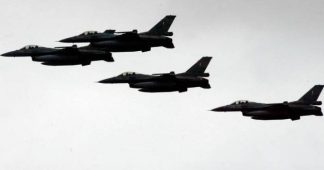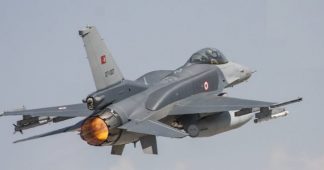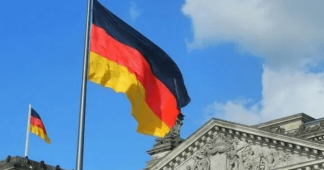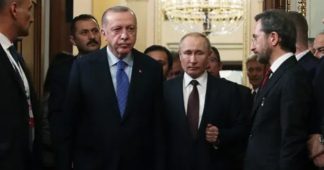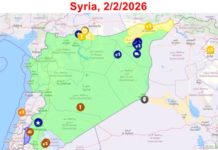Jul 26, 2020
In light of the destructive capabilities of the Armed Forces of Greece and Turkey a Greek-Turkish military confrontation not only does not serve the two countries interests but will probably have severe internal political, economic and social repercussions as well as serious complications internationally, creating tremendous problems for NATO, the US, the EU, and the Eastern Mediterranean, the Middle East and North Africa and beyond, believes Dr. Aristos Aristotelous of the Cyprus Center for Strategic Studies (CCSS).
In the Centre’s annual report of the military balance of power between Greece and Turkey for 2020, Aristotelous reiterates the findings of earlier CCSS publications that “Turkey, based on the military data listed below, had and will continue to have numerical superiority over Greece in various areas – in some cases qualitative.”
“Yet, except human resources, Turkey’s advantageous position is neither overwhelming, nor is it a guarantee that the outcome of a possible military confrontation in the Greek-Turkish theatre of operation will be in its favor. On the contrary, the possibility of a crash with serious consequences for itself and its regime is a real possibility,” he adds.
As for the Greek – Turkish force ratios, they are currently reduced to 2.4 Turkish soldiers for each Greek compared to 3.5: 1 in 2014, the report says. It explains that this ratio “has been affected by the reduction of the length of the conscripts’ national service, but also by the mass purges of alleged dissidents in the Erdogan regime among the ranks of officers and senior officers in the Turkish Armed Forces.”
According to the report, the active military personnel in Turkey in 2020 amounts to 355,200 people underarms. Turkey has the highest number of troops in Europe, followed by France with 204,000, Germany with 181,000, Italy with 166,000, the United Kingdom with 148,000, and Greece with 142,350.
AΡΜΥ
About the Army’s personnel strength in 2020, the report states that in Greece, this amounts to 93,500, compared to 260,200 in Turkey. “Here there is a slight increase in the forces of the Greek side and a considerable reduction in the Turkish. Therefore the force ratios of 3.5 Turkish soldiers for each Greek in 2014 now stands at 2.5: 1,” he says.
As for tanks, the report indicates that Greece currently has 1,328 main battle tanks and Turkey 2,379. In 2014 Greece had 1,462 and Turkey 2,504. “The reductions on both sides kept the correlation of forces unchanged since in 2020 as in 2014 every 1 Greek main battle tank accounted for 1,7 Turkish. Both sides have German and American tanks such as Leopard, M-60, and M-48.”
About Armored Personnel Carriers, the report points out to a significant increase of 648 on the Greek side compared to 2014 and none in the Turkish. So the power ratios decreased from 1.9 Turkish APC for each Greek in 2014 to 1.4: 1 in 2020.
It also reports that Turkish forces are recording a significant increase in wheeled armored vehicles (PPV and AUV Cobra), while for armored combat vehicles, the report notes that the ratio remains at the same figures as in 2014, namely: Greece 398 and Turkey 645.
For artillery, it states that after a marked decrease in the capacity of the Greek side in this area and a corresponding increase in the Turkish side over the last decade, in 2020, Greece’s position seems to have improved considerably.
NAVY
About the Navy, the report points out that Greece has 11 submarines and Turkey 12. As far as frigates are concerned, it notes that: After a reduction of one frigate in the respective sides, the comparison in 2020 returned to the same levels. Thus Greece now has 13 frigates and Turkey 19.
Corvettes, patrol cars, and other crafts: Greece has 5 Corvettes, 33 patrol crafts, and 20 landing boats, as well as nine support vessels of various types. Respectively, Turkey has six corvettes, 41 Patrol and 35 landing boats, as well as 79 support vessels of different types.
AIRFORCE
Finally, regarding the Air Force, the reported underlines that: In the Hellenic Air Force in 2020, fighter aircraft are 231 compared to 262 in 2014 and 283 in 2004. But, according to the report, even more noticeable is the decline on the Turkish side, where fighter jets stood at 308 compared to 352 in 2014 and 407 in 2004.
Regarding reconnaissance aircraft, Greece has 28 and 38 Turkey, while in terms of Early Warning Aircraft, the report says that in 2020 Greece has four types of EMB-145 AMB-145AEW as in 2014. Turkey also has 4 Type B-737 AEW now, compared to 1 it had in 2014.
